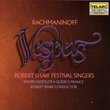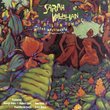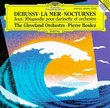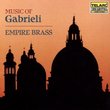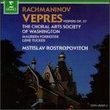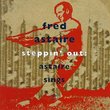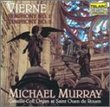| All Artists: Frederic Chopin, Charles Mackerras, Orchestra of the Age of Enlightenment, Emanuel Ax Title: Chopin: Piano Concerto No.2 in F minor/Grand Fantasia/Grande Polonaise Members Wishing: 0 Total Copies: 2 Label: Sony Release Date: 6/30/1998 Genre: Classical Styles: Forms & Genres, Concertos, Fantasies, Instruments, Keyboard, Symphonies Number of Discs: 1 SwapaCD Credits: 1 UPC: 074646337127 |
Search - Frederic Chopin, Charles Mackerras, Orchestra of the Age of Enlightenment :: Chopin: Piano Concerto No.2 in F minor/Grand Fantasia/Grande Polonaise
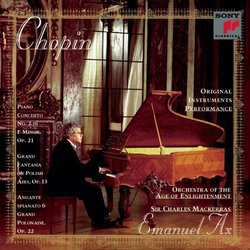 | Frederic Chopin, Charles Mackerras, Orchestra of the Age of Enlightenment Chopin: Piano Concerto No.2 in F minor/Grand Fantasia/Grande Polonaise Genre: Classical
Revisiting the very repertoire featured on his concerto recording debut from the seventies, Emanuel Ax makes his first foray into the world of period instruments, playing a mid-1800s Erard. While its sound is not as big ... more » ![header=[] body=[This CD is available to be requested as disc only.]](/images/attributes/disc.png?v=430e6b0a) ![header=[] body=[This CD is available to be requested with the disc and back insert.]](/images/attributes/disc_back.png?v=430e6b0a) ![header=[] body=[This CD is available to be requested with the disc and front insert.]](/images/attributes/disc_front.png?v=430e6b0a) ![header=[] body=[This CD is available to be requested with the disc, front and back inserts.]](/images/attributes/disc_front_back.png?v=430e6b0a) |
Larger Image |
CD DetailsSynopsis
Amazon.com essential recording Revisiting the very repertoire featured on his concerto recording debut from the seventies, Emanuel Ax makes his first foray into the world of period instruments, playing a mid-1800s Erard. While its sound is not as big as that of a modern concert grand, the treble and bass registers have greater timbral differentiation. Ax responds to the instrument like a kid with a new toy. The concerto's outer movements are lighter in texture and more urgent in expression than the two shorter concerted works, which sing and dance with just the right blend of pomp and brio. Abetted by his superb, responsive band, Charles Mackerras clarifies instrumental detail in a way that belies Chopin's maligned reputation as an orchestrator. --Jed Distler Similarly Requested CDs
|
CD Reviews??!!But this is a GREAT album!!?? marcel195 | Victoria Australia | 02/22/2001 (5 out of 5 stars) "I was a little hurt while reading the other reviews of this album - I've become quite attached to this recording ever since I bought it. We've spent a lot of time together, mostly in my car, but also late at night with the headphones on. Emanuel Ax plays brilliantly: his playing is extremely mature, purely musical, with a singing quality that most virtuosi forget (or never learn). He gets a (surprisingly) beautiful tone out of the 1851 Erard and handles the "flowering" of melody so smoothly and rhythmically it's as though he has simply closed his eyes and imagined the notes out of the piano - ie. Ax does more than just play the piano. In fact, you forget that a piano and a piano player are involved - rather, the music is allowed to stream through uninhibited by showy flashes of technical gymnastics. The "Grande Polonaise" is flawless, and the "Fantasia on Polish Airs" is a beautifully performed (by the Orchestra of The Age of Enlightenment) insight into early Chopin orchestral writing.The audio technical quality is superb - the orchestra is well balanced, as is the piano (in both treble and bass). *It might be helpful to note that I played the album for a friend of mine: he wasn't at all impressed with the concerto but was very impressed with Emanuel Ax. So, if you haven't heard the concerto, but love Chopin: buy this album; But if you have a copy of the concerto that you already love, maybe it'd be better just to stick with that (although, really I think this is the best...at least that I have heard). I also recommend that you listen to audio samples - then you'll know for sure." One Of The Great Recordings Of Chopin's 2nd Piano Concerto John Kwok | New York, NY USA | 12/19/2001 (5 out of 5 stars) "Emanuel Ax does the impossible, making an excellent transition in his playing from a contemporary piano to this vintage 1851 Erard. Unlike Argerich, Ax's playing is indeed sublime, creating an understated, yet still beautiful, interpretation of Chopin's 2nd Piano Concerto. It's as though he is letting his fingers "sing" across the Erard's keyboard, in lieu of pounding it. There is still much drama he gleams from his playing, even with his deft, subtle touch. Mackerras does such an excellent job illuminating the orchestral textures of Chopin's score that you almost forget that it's being performed by the Orchestra Of The Age Of Enlightenment on period instruments, not an ensemble with modern instruments. Ax, Mackerras and the orchestra yield excellent performances of the other scores, but their finest effort is indeed the concerto. The sound quality is excellent." Sublime Chopin Molly the Cat | the USA | 08/13/2000 (4 out of 5 stars) "Emanuel Ax and Sir Charles Mackerras team up on an album that is delightful in every way. Using an 1851 Erard which was restored after being, according to the liner notes, "found languishing in a school in London, shoved up against the radiators" (!!), Ax brings out the poetry and feeling of these works so well, and is backed so ably by Mackerras' forces, that you forget it's supposed to be a "period instruments" affair. Some of the music is admittedly fluff (particularly the "Grand Fantasia on Polish Airs"), but what entertaining and splendidly played fluff! This and the other volume by the same forces (containing the Chopin Concerto No. 1) which is sold separately are delightful and worthy of Chopin lovers everywhere."
|

 Track Listings (6) - Disc #1
Track Listings (6) - Disc #1